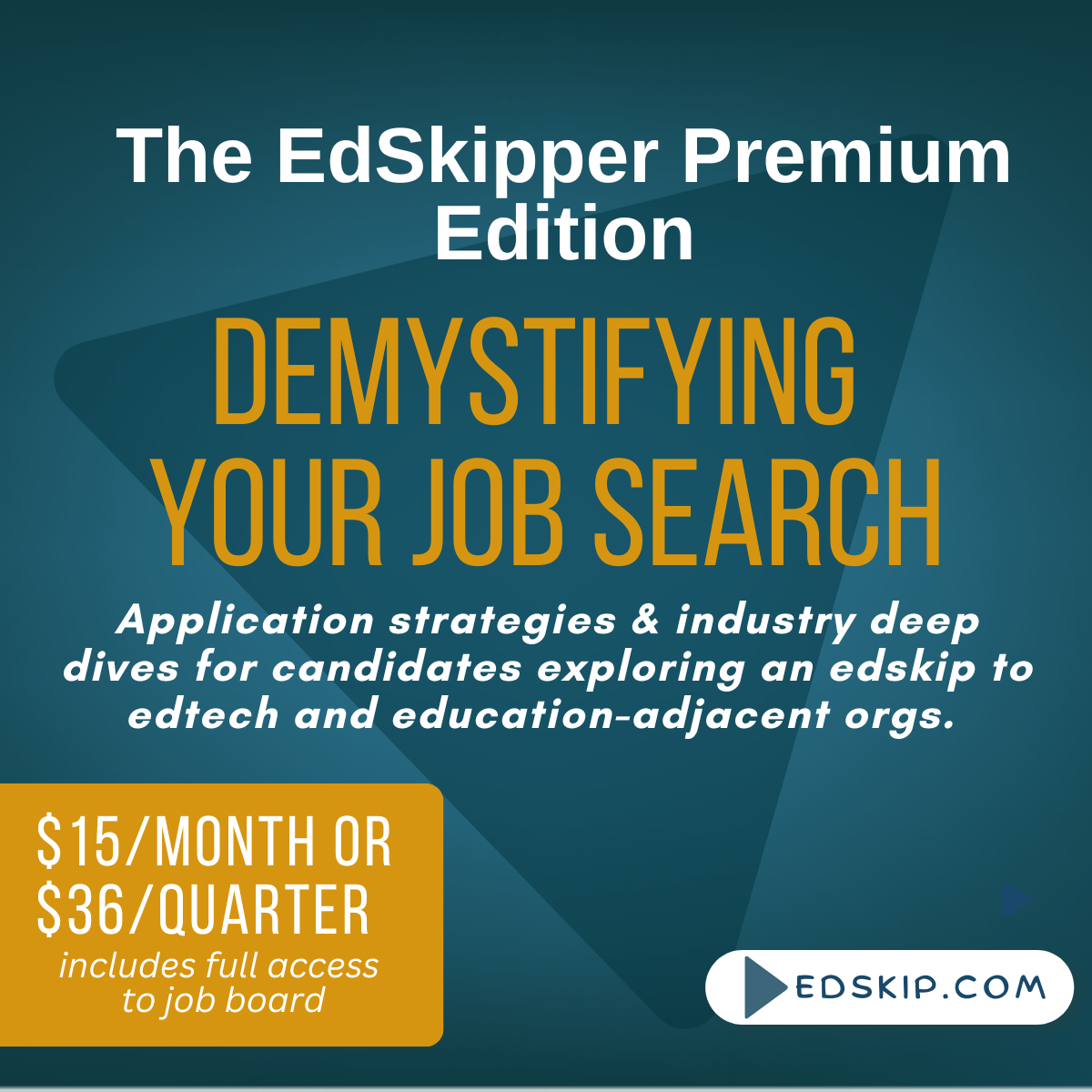Applying to Data and Research Jobs
I’ve been posting some really interesting jobs over in the Data & Research job category recently, many of which require relevant data analytics and reporting skills rather than specific industry-experience or background.
In fact, 70% of the data/research/policy roles I’ve posted over the last quarter are looking for relevant skills rather than specific industry knowledge. As an educator who has SME and a lot of generalist skills that are important in data roles, this is a great category of jobs to keep an eye on. I often see entry-level to early career roles and, for some roles, your graduate degree and relevant data work in your current role make you well-qualified for a mid-level role.
When data & research jobs ask for relevant skills, what exactly are those? They can be technical programming languages (like R or Tableau) but they can also include advanced knowledge of tools you likely use every day now – i.e. Excel.
I’ve also seen more than a few jobs say they’d prefer a candidate with a few years of data analysis experience but they’re open to training the right person in the job or are open to candidates who have learned the skills but may not have professional experience in the field. In other words, edskippers!
Some examples from jobs I’ve posted over the last quarter:
- A research Associate position looking for software and database experience (Excel and Access specifically) and education experience
- A Senior Data Associate looking for intermediate Excel experience and experience doing data collection, creating training resources, and providing technical support
- A Research Partner Facilitator looking for experience in education and a preference for some experience using education data
- A Data Analyst looking for 3 years experience with: advanced Excel skills, data analysis programming languages, and data visualization or the ability to gain these technical skills on the job
- A Content Analyst looking for qualitative research experience either in an academic or “professional” setting (“professional” is their word…but it’s also hard to find a different one!)
- A Data Analyst with 1+ years experience analyzing data (or equivalent education) and familiarity with k12 curriculum and assessment
In other words, if you’re interested in these types of roles, leveraging your current skills and spending some time on upskilling can open many new opportunities.
These are roles that you can definitely upskill into – using your current students and school data (with permission, of course) to build experience and create a portfolio – or even move directly into from your current role. And, as I mentioned earlier, many of you also have qualitative research experience from your graduate degrees that can also meet some or all of the prerequisite experience.
The reason why so many of these roles are asking for related skills rather than a specific background is that Data Analysis and many research roles require the ability to ask sharp questions and find surprising insights in a mass of details. That can be much harder skill to teach than a specific software program or even research methodology.
Furthermore, the roles I post, of course, are at edtech companies or education adjacent non-profits so they’re working with education data and need employees who understand what the data actually references IRL.
A lot of times when an analyst examines education data, they might not understand a particular trend unless they have experience in the school system. For example, we all know that family income is correlated with school performance but a novice researcher might look at the disparities between two schools and focus on school-based differences rather than societal impacts. While that’s an example the general public is probably familiar with, as educators we also know that inequality is about more than just income – parental involvement, for example, is a powerful antidote to inequality in low income communities.
Understanding how students actually learn and how a school system works means that you can ask better questions about educational data and make better assumptions and conclusions as you’re analyzing data than someone who is trained in ‘just’ the statistics.
In addition, many of you hold Master’s or even PhD’s in education or one of the social sciences. That means you have relevant training in qualitative and quantitative data collection and analysis and perhaps even in statistics – and you probably have demonstrated research projects that show your skills, having conducted interviews, focus groups, and analyzed the qualitative data while also pulling quantitative data from government or other sources. This kind of experience counts when you apply!
If you’re interested in data or research roles, today I’m going to talk about what I’m seeing in job descriptions and how you can leverage your current experience or summer upskilling for data jobs.
The Remainder of this article is for Paid Subscribers. You can subscribe here and access the newsletter archive as well as find jobs at 350+ remote edtech/ed adjacent companies.





